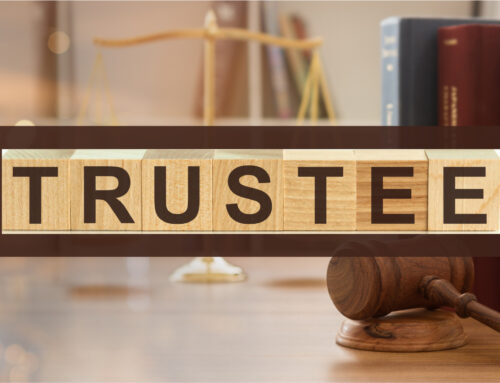This is a very important question of Utah law. Very few people really understand how property is transferred after death, and the answer is essential to understanding Utah wills, Utah trusts, Utah estate planning and Utah probate.
So, lets make up a story and see how it works. George is a rich Utah widower. Gina has succeeded in having George write her into his will, with these words: “I, George, leave all my estate and property of every kind to Gina.”
To make the story work, I will tell you that George knows what he is doing, is fully competent and his will is valid and binding in Utah. By law, Gina gets everything which passes under George’s will.
Will Gina inherit all of George’s property?
The answer may surprise you.
 Now, imagine these blue barrels hold everything George owns at his death – money, stocks, bonds, deeds to real estate, diamonds, gold, silver, Jazz season tickets – everything.
Now, imagine these blue barrels hold everything George owns at his death – money, stocks, bonds, deeds to real estate, diamonds, gold, silver, Jazz season tickets – everything.
When George dies, his property goes this way:
- Property in trust. All the property in George’s family trust stays in the trust and passes to those family members and friends named as beneficiaries in the trust. Gina does not get these no matter what the will says. This is because the trust owns them, not George. This feature of a trust avoids probate, and trust assets pass smoothly without court involvement.
- Property in joint tenancy. George owns real estate in joint tenancy with the right of survivorship with his three children. When he dies, the property goes by law to his three children. Gina does not get it because it does not go through the will, no matter what the will says.
- Property in P.O.D. accounts. George’s bank and financial accounts have account cards with “payable on death” (P.O.D.) beneficiary designations. His three children are listed as the account beneficiaries so they inherit them as a matter of contract and probate law when George dies. Gina does not get the money in the accounts because it does not go through the will, no matter what the will says.
- Property with T.O.D. designations. George owns a large family business which his family operates as an LLC. In the business documents, George designated his children as the “transfer on death” (T.O.D.) owners of the business. Gina does not get it because it does not go through the will, no matter what the will says.
- Insurance with beneficiary designations. George has a large insurance policy with his children named as beneficiaries. They will get the proceeds when he dies as a matter of contract and law. Gina does not get it because it does not go through the will, no matter what the will says.
- Gifts made before death. Before George died, his children visited him in the hospital where he gave them all his expensive jewelry and artwork. The gifts are legal and his children own the property. Gina does not get it because it does not go through the will, no matter what the will says.
The balance of George’s property can be called his “probate property.” This is the property which is subject to probate and which went through George’s will to Gina after he died. Of course, George’s debts and probate expenses were deducted from Gina’s share in the probate. At the end, Gina inherited George’s furniture, his clothes and about $9,000. She got everything which passed through his will, but not everything she expected.
Now you understand Utah inheritance laws.




Leave A Comment